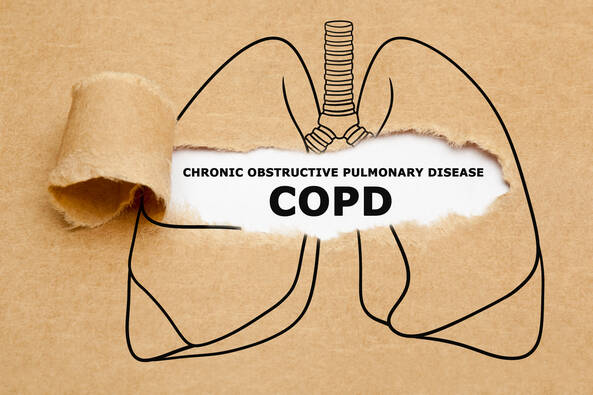Uncovering the facts about COPD

In recognition of National COPD Awareness Month, MultiCare pulmonologist Venkat Rajasurya, MD, answers common questions about the disease to encourage people to recognize its symptoms and seek treatment. With early diagnosis and treatment, people with COPD can greatly improve their quality of life.
What is COPD?
Chronic obstructive pulmonary disease, also known as COPD, refers to a group of diseases that cause chronic airflow obstruction and breathing-related problems. Symptoms of COPD include shortness of breath, excessive mucus production, wheezing and constant coughing. Chronic bronchitis and emphysema are two of the most common conditions under the COPD umbrella.
Is it possible to prevent COPD?
The best way to prevent COPD is to avoid smoking. Smoking is the leading cause of COPD. Patients with COPD who have quit smoking typically see a significant reduction in the progression of the disease.
How can I tell if I have COPD?
COPD is diagnosed in patients with respiratory symptoms through a simple lung function test called spirometry, which measures the amount of air you can breathe in and out of your lungs, as well as how fast you can blow the air out of your lungs.
How is COPD treated?
The most essential step in the treatment of COPD is quitting smoking. Other treatments may include medication, pulmonary rehabilitation, supplemental oxygen or surgery. Not all people with COPD experience the same symptoms and treatment differs from person to person. The ultimate goal of treatment is to reduce or prevent exacerbations, or “flare ups” of the disease. COPD exacerbations are more aggressively managed with the use of oral steroids and assessment of the need for hospitalization.
What is the role of pulmonary rehabilitation?
When you have COPD, the right amount of exercise you get and the type of exercise you do offers many benefits and is an important part of staying healthy. The goal of a pulmonary rehab program is to help the patient return to the highest level of function and independence possible, while improving the overall quality of a person’s physical, emotional and social life. It helps people with COPD live more comfortably by improving endurance, providing relief of symptoms and preventing the progression of the disease with minimal side effects.
Can COPD be cured?
There’s currently no cure for COPD, but treatment can help slow the progression of the condition and control the symptoms. That is why early diagnosis and treatment are so important.
What else can I do?
Many COPD patients find relief through breathing exercises. If you have COPD talk to your doctor about social support through a pulmonary rehab program, join the American Lung Association’s Better Breathers Club or call their Lung Helpline at 1-800-LUNGUSA (1-800-586-4872). Find help to stop smoking. Exercise on a regular basis and eat a healthy diet.
Why is it important to get treated?
COPD is a preventable and treatable condition. If COPD is left untreated, it can lead to severe limitation to quality of life. When appropriately managed symptoms can be greatly relieved and those with COPD can enjoy an improved quality of life.
COPD and COVID-19
Symptoms of COVID-19 mimic symptoms experienced by patients with COPD. People with COPD are not at higher risk of contracting COVID-19 but they are at higher risk for complications and poor outcomes if they do contract the virus.
What can you do during the pandemic?
For patients living with COPD, stringent adherence to safety precautions is vital. Stay at home, avoid sick people, practice social distancing and wear a mask in public places. Don’t delay important medical visits or ignore flare ups or new symptoms. COPD complications can become serious if left untreated. Delayed or avoided medical care during the pandemic could increase morbidity and mortality associated with chronic health conditions like COPD.
If you are experiencing new or recurring symptoms of COPD, find a provider near you to schedule an appointment. MultiCare also offers convenient virtual care options.




